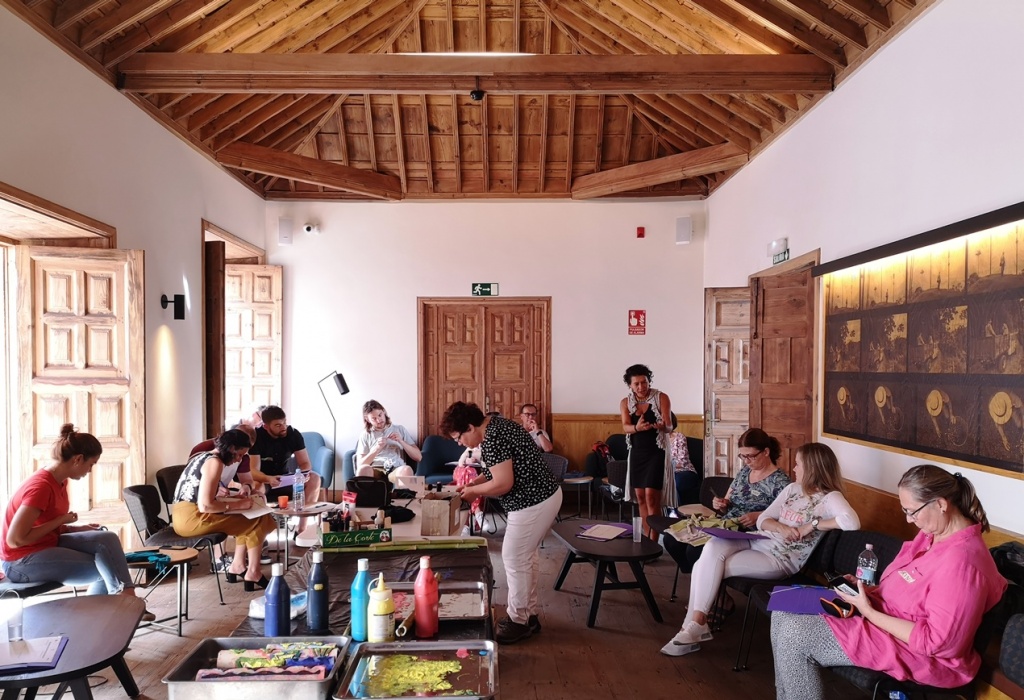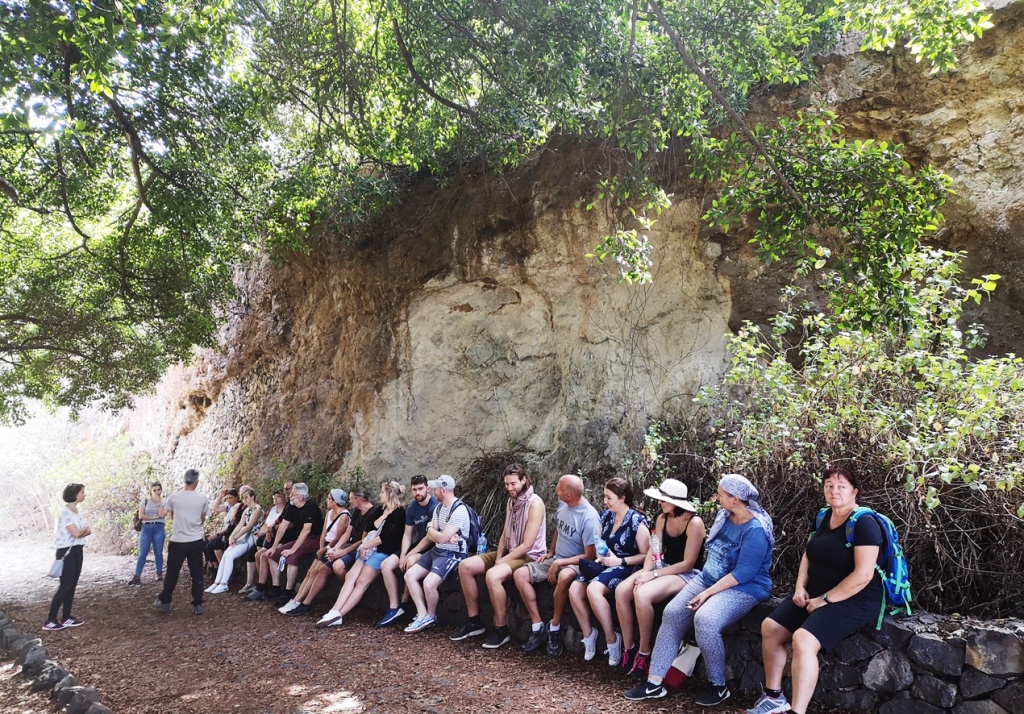This course will teach innovative methodologies to teach sustainability that compel people to take action and change their individual and collective habits for the better for their health and of the environment.
Researchers have proved that the fear-based discourse is not effective for taking action regarding the environment. A positive and solution-based approach is much more effective. With this in mind, the participants will experience positive narrative, action-oriented and practical activities, examples of outdoor education by visiting permaculture ecological garden that allows re-connection with nature and ecological food through etc. 
Through group exercises, practical workshops, the participants will learn about the the impact of collective environmental initiatives vs individual measures, how to design activities using recycled materials etc. The nature of this course is highly practical and hands on, so the participants will experience themselves the innovative techniques while also reflecting on how to apply them to their context.
Competences to be acquired:
- Improved environmental competences
- Knowledge about innovative methodologies of teaching sustainability
- Knowledge about research results on the effectiveness of individual habits regarding climate change
- Increased awareness of the impact of collective environmental initiatives
- Increased knowledge and skills on permaculture and ecological gardening
- Increased environmental consciousness and awareness about alternative consumption patterns.
- Knowledge about how to reduce consumption and change consumption patterns.
- Skills on how to deliver upcycling workshops in order to increase environmental awareness.
- Skills on how to design activities using recycled materials.
- Intercultural competences and enhanced cultural awareness
- Ability to create a stimulating and open learning environment and foster collective learning.
- Ability to do networking and create professional and personal relations with teachers from other countries.
Target audience
Teachers (pre-school, primary, secondary, vocational, adult education centers), teachers trainers, school leaders and other schoolcstaff and professional workers that work with learners from disadvantaged backgrounds.

Daily programme
Day 1 – Innovative approaches to environmental education
- Introduction to the course
- Ice breaking: building group cohesion
- Group exercise: What is the environmental impact of the products we use?
- Group exercise: Which consumption changes are most effective regarding climate change?
- Approaches to sustainability: solution-driven vs fear-based discourse
- Building a positive narrative around sustainability
- Exchanging good practices on environmental education
Day 2 – Individual changes vs collective initiatives
- Warm-up and teambuilding exercises
- How can we build sustainable habits?
- The effectiveness of changes in habits: individual changes vs governmental changes vs collective initiatives
- Teaching through examples and case studies (sharing economy, collaborative consumption etc.)
- Practical exercise: connecting with nature using all our senses (smell, taste, touch, listen and look at different objects)
- Practical workshop with recycled materials
- Individual/group reflection: what collective initiatives can I find in my neighbourhood?
- Reflection: How can I adapt the key learnings in my work?
Day 3 – Permaculture and km0 food
- Visit and workshop in a Permaculture ecological farm
- Ecological and regenerative approach to producing food. Consumption groups.
- Local consumption and km0 food: How far do our food and goods travel to get to our house?
- Group reflection: What habits can I change regarding my nutrition and food supply? Reflections on meat reduction.
- Reflection sheet: What sustainable habits do I already have? What new habits do I commit to acquire? What have I learnt and want to remember? What would I like to dig more into at home?
- Informal learning
Day 4 – Workshops
- Warm up and group division exercises
- What are the ingredients of the chemical products (hygiene, cleaning, cosmetics) we use?
- Group work: Dangerous ingredients for our health and the environment
- Practical workshops

Day 5 – Visit to permaculture ecological farm and closing
- Guided visit to a permaculture farm working with people with mental disabilities (23 years of experience)
- The role of permaculture as a therapeutic experience
- How to adapt outdoor activities when working with persons with special needs
- Open discussion on possible future collaborations and planning follow up activities
- Summary of key learning points
- Final course evaluation and feedback
- Validation of learning outcomes and handling certificates
- Informal learning
Methodology
We tailor our working methods based upon the participants‘ needs and professional profiles in order to ensure easier adaptability and application of the tools to the real life.
Our standard methodology is based on active learning and it is highly participative and practical. We have a hands on approach that comprises group exercises, role plays, experiments, case studies and simulation exercises. We use collaborative learning techniques to foster the exchange of good practices and collective learning.

The pedagogical methods used in this training course are based on garden-based learning, experiential learning, learning by doing. Our focus is on showing the participants how the learners’ motivation increases when they become the actors of their own learning because the teacher takes the role of facilitator or learning guide. Thus, the participants get the chance to experience on themselves the benefits of the active learning methodology at the same time as learning how to apply it in their classroom.
Energizers, games and group dynamics are foreseen daily in order to ensure a positive energy and a cooperative learning climate in the group.
Group reflections and daily brief feedback sessions are planned to help adapting the learning programme to the specific needs of the participants.
Certification and validation of learning outcomes
- Certificates of attendance
- Support with the Europass mobility certificates – to be issued by the applicant’s National Agency
Upon request, we also provide educational centers with additional documents that are required to certify the presence to the course and the competences learned. For example, we provide photos of the training course that can be used for dissemination purposes.
Pre-register to our course!
Write us some details about your project idea. How many participants do you want to send? What are the profiles of the teachers/staff interested in the course?

